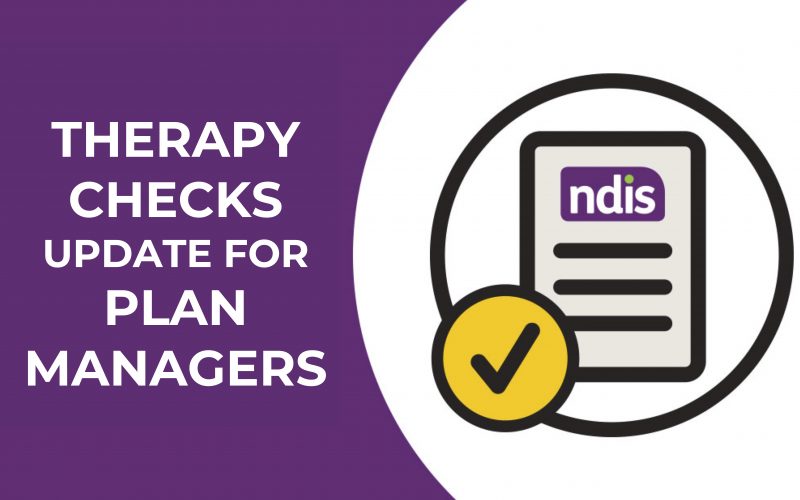Plan Management – Responsibilities When Processing Therapy Claims
The recent release of the 2022 – 2023 NDIS Pricing Arrangements and Limits document has raised a significant operational issue concerning any additional responsibilities RPMPs have when processing therapy claims.
The Pricing Arrangements document (price Guide) for 2022-23 now stipulates the membership / registration requirements for induvial therapists delivering therapy supports in the NDIS (as per page 92 of the Pricing Arrangements and Limits).
DIA has sought clarification from the NDIA as to whether the expectation is that RPMP’s are required to check the individual support providers qualifications or credentials to deliver said therapy prior to a RPMP claiming against an invoiced therapy support.
As it stands today there is no formal or communicated position requiring an RPMP to validate or ensure that the practitioner delivering said therapy support meets the qualification standards listed within the Pricing Arrangements document (price Guide) for 2022-23.
DIA does maintain that such checks are optional best practice measures as communicated in our Professional Standards of Practice (Section 9.3.5.3 Restricted and Professional Services page 41). However, given the current pricing constraints being felt DIA stresses that such requirements under our standards are not mandatory.
This position is loosely supported by NDIA communication from Provider Support who published an article clarifying that all therapies previously funded by the NDIA will continue Provider Support Email – Therapy Supports.
DIA’s position is in keeping with the precedent set by the stated non-requirement of RPMPs to check TTP compliance when a provider claims a TTP price (“Plan managers are not responsible for ensuring providers are TTP compliant. They can accept the claim for a TTP support item by a registered provider as proof of TTP compliance.” page 37 NDIS 2022-23 Pricing Arrangements and Limits).
All current compliance checks should remain, but in the absence of a formal policy position from the NDIA on this matter, DIA is of the opinion that it is the responsibility of the Therapy Provider (individual / company / organisation) to ensure that the therapists delivering the supports are suitably qualified and registered as per the Pricing Arrangements and Limits requirements. As such, DIA does not believe that the changes to the Pricing Arrangements and Limits document expressly require any additional checking processes to be implemented by RPMPs.
DIA will continue to seek written clarification from the NDIA on this matter and keep members and the sector updated. In the intervening period RPMPs should be comfortable to claim for Therapy supports, on behalf of a participant, in the same manner as they did in the previous financial year, without fear of being subject to NDIA compliance activities.
DIA has discussed this position with the NDIA and made it clear that any future policy or clarity on this matter must not be retrospective. DIA has received no objection from the NDIA on our position given this policy gap.
DIA has raised a number of questions regarding plan management to the NDIA in response to the Annual Price Review and will provide an update on these as they become available.

